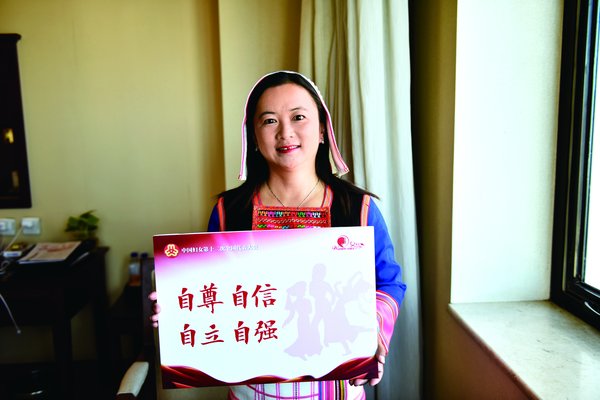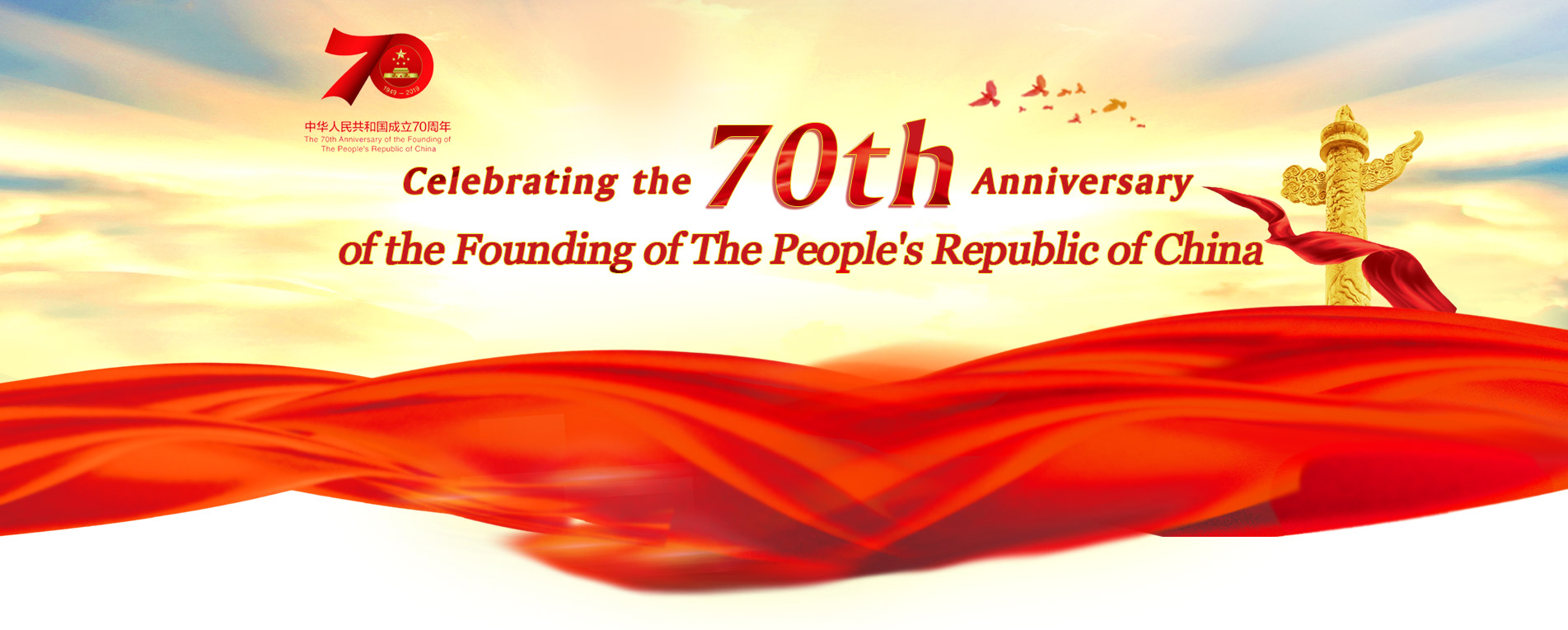Cadre Helps Villagers Escape Poverty, Live Happy Lives
Bai Lan became head of Jinuoshan, an ethnic Jino township in Jinghong, a city in Xishuangbanna Dai Autonomous Prefecture, in southwestern China's Yunnan Province, in 2012. Bai became the first woman to head the township. She has dedicated her heart and soul to helping ethnic Jino people escape poverty and live better lives.
Helping Locals Solve Problems
The Chinese Government in 1979 officially recognized the Jino people as the country's 56th ethnic group. Jino is one of the smallest ethnic groups in China, and the Jino people mainly live in Xishuangbanna. The people speak Jino, but the language does not have its own ethnic characters.
The Chinese Government dispatched working teams to Jinuoshan after 1949, to publicize and promote the country's ethnic policies, and to help locals both develop agricultural production and improve their level of education. The Jino people have continually improved their lives throughout the years.
Bai became head of Jinuoshan Township at the end of 2012. At that time, many people in the township still lived in poverty. So, Bai decided to help the locals live better lives. She often told the villagers to ask her for help at any time. Every week, she went to villages (within the jurisdiction of the township) to help the villagers solve their problems. Many of the villages did not have paved roads; as a result, she often had to traverse rugged mountain roads to reach the villages.
In 2013, Bai visited three villages that did not have paved roads. She had to walk 10-plus kilometers to reach the villages, just so she could learn about the locals' production and living conditions. She organized a group meeting so she could talk to the villagers about their problems. Her sincerity touched the villagers, and they shared their difficulties, one after another.
"If I did not go to the villages, how could I learn about the difficulties of the villagers? If I did not become integrated with the villagers, and make friends with them, they could not trust me and tell me their troubles," Bai says.
A Great Leap
Bai has explored many methods of helping the locals escape poverty and become rich. She borrowed 1.927 million yuan (US $279,275), which was used to repair irrigation ditches, pave roads, and plant trees along the roads, in the township. She believed more travelers would be attracted to the township — and more businesspeople would invest in local enterprises — if the environment of the township was improved. She allocated money for solar street lamps, after she learned the street lamps were not bright enough along the route to the school.
"Over the past six-plus years, the most satisfying thing that I have done was establishing the Market Day. The tradition of the Jino people is equal division. So, I established Market Day. The fair is held twice a month. The villagers sell home-grown products and handmade crafts along the roads in the township. They can make more money and live better lives through their hard work, which encourages them to make more efforts to grow high-quality products and/or make more exquisite crafts. Now, the streets are bustling on Market Day. Many travelers go to the fairs," Bai says.
The committee of Xinsitu Village established an online shop in June 2016, with the help of Bai. The Party branch of the village runs the shop. The villagers can sell their tea, honey, dried food and handmade embroideries via the shop. "The agricultural products of the township are sold to customers directly via the online shop, which has helped boost the development of the township's economy. The economy has achieved great-leap-forward development in the past two-plus years. Tea, rubber and fructus amomi (a kind of traditional Chinese medicine) are the three mainstay industries of the township. The high-quality fruits and nuts planted by the locals also sell well," says Bai.
In the past, the quality of the locally produced tea leaves was bad. The locals used excess pesticides and chemical fertilizers, and the tea leaves were produced in a rough way. So, the price of the tea was always low, and tea planters lost their initiative to plant tea. Bai established Youle old tea festival several years ago. A tea competition is held during the festival. Tea experts, invited by the township's government, taste and appraise the tea leaves during the competition. The experts select high-quality tea leaves, and the local government helps promote the high-quality tea leaves.
"Now, tea planters in our township sell organic, high-quality tea that tastes mellow. The tea sells for more than 4,000 yuan (US $580) per kilogram. The tea planters always strive to improve the quality of the tea," says Bai.
"In the future, I hope more people will understand and support the work of the local government. We should unite all efforts to help the local people live happy lives," Bai continues.
Protecting Folk Culture
Folk culture is the foundation of the Jino ethnic group. Bai has done her best to protect and promote the ethnic group's folk culture since she became head of the township. She has organized various activities to promote the group's traditional handmade embroideries and folk songs. She also helped establish cooperatives to make and sell handmade embroideries, traditional drums and other crafts.
"Jino people do not have their own ethnic characters. The Jino culture is disappearing, slowly, as many elderly people of the ethnic group pass away. So, I helped establish a museum about the Jino ethnic group in 2017. The two-story museum covers an area of nearly 1,500 square meters. Many exhibits in the museum were donated by the villagers. The museum introduces the songs, dances, musical instruments and agricultural culture of the Jino ethnic group. It also introduces the development of the ethnic group," says Bai.
Tremendous Achievements
The Jino people have made tremendous achievements since China's reform and opening-up. In 1978, the per capita income of the villagers in the township was nearly 106 yuan (US $15). The total income of the township was 964,000 yuan (US $139,710). The locals still lived in thatched cottages, and they did not have electricity and running water. In 2018, the total income of the township exceeded 255 million yuan (US $37 million). The per capita income of the villagers was 11,757 yuan (US $1,704). More than 570 people have escaped poverty. All of the families in the township have electricity and running water.
In the past, many young people of the ethnic group migrated to big cities for work. Few university graduates were willing to return to the township from other cities. However, with the development of the local economy, many young people have returned to their hometown for work. Bai encourages young people to return to the township and use their advanced ideas to make contributions to the township's development.
Bai was elected to be a delegate to the 12th National Women's Congress of China, held in 2018 by the All-China Women's Federation. "As a representative of the Jino ethnic group, I was proud to take the wishes of Jino women to the congress. In the future, Jino people will unite with people of all ethnic groups in our country, to strive for the realization of the Chinese Dream of achieving the great rejuvenation of the Chinese nation."
 |
| Bai Lan [Women of China/Zhang Jiamin] |
(Women of China)
Please understand that womenofchina.cn,a non-profit, information-communication website, cannot reach every writer before using articles and images. For copyright issues, please contact us by emailing: website@womenofchina.cn. The articles published and opinions expressed on this website represent the opinions of writers and are not necessarily shared by womenofchina.cn.

 京公网安备 11010102004314号
京公网安备 11010102004314号